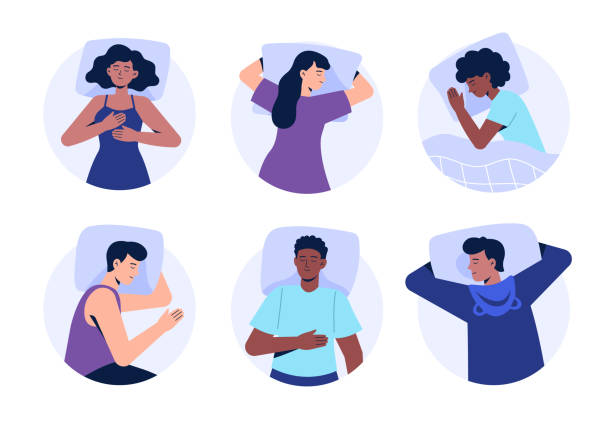Is Gluten Ruining Your Sleep? Here’s What You Need to Know (And What to Do)
You Sleep How You Digest

You might not expect your gut to mess with your sleep — but if you often wake up bloated, restless, or with a racing mind, your digestion might be the hidden cause. Poor gut health and food intolerances can directly impact your ability to rest. And for many, gluten is at the root of it.
Whether you have gluten sensitivity, celiac disease, or are just noticing weird sleep patterns after pizza night, your body might be struggling with how it breaks down what you eat. Let’s break down how gluten affects your rest — and what you can do about it.
1. The Gut-Brain-Sleep Connection
Your gut isn’t just about digestion — it’s deeply connected to your brain. In fact, it’s called the second brain for a reason. The gut and brain communicate constantly through the vagus nerve, influencing everything from mood to melatonin production.
When your gut is inflamed or disrupted (like from gluten intolerance), it can lead to:
- Increased stress hormones (like cortisol)
- Reduced serotonin and melatonin
- Higher inflammation — which disrupts deep sleep cycles
Simply put: when your gut’s stressed, your brain can’t sleep right.
2. Could Gluten Be the Culprit?
Not everyone reacts the same way to gluten, but here are subtle signs that gluten might be messing with your sleep:
- Restlessness after eating breads, pasta, or fried food
- Waking up puffy, gassy, or mentally foggy
- Trouble falling asleep even when you’re tired
- Joint pain or bloating that flares up in the evening
Even if you don’t have full-blown celiac disease, non-celiac gluten sensitivity (NCGS) can still wreak havoc on your system — silently.
3. How Undigested Gluten Disrupts Sleep
When gluten enters the digestive system of someone with sensitivity or intolerance, it doesn’t always get broken down efficiently. Instead of being fully digested like other proteins, it can linger in the gut, irritating the intestinal lining and causing microscopic damage. This irritation triggers the immune system to respond as if it’s under attack — even if you didn’t eat a huge amount.
That immune response creates widespread inflammation, which doesn’t just stay in your gut. It travels throughout the body and up to your brain. One of the first things this systemic inflammation does is increase the production of cortisol, the body’s primary stress hormone. Cortisol plays a key role in your sleep-wake cycle. Normally, levels should be low at night, allowing your body to relax and produce melatonin. But when gluten disrupts digestion, it pushes cortisol levels too high during the evening — leaving your brain too alert to enter deep, restorative sleep.
Over time, this disruption doesn’t just make it harder to fall asleep — it affects the quality of the sleep you get. Many people start waking up throughout the night without knowing why. They may feel anxious for no reason, toss and turn, or wake up feeling exhausted even after 7–8 hours in bed. Their body was technically “asleep,” but the sleep was fragmented and shallow.
By improving your digestive response to gluten, you’re not just easing stomach pain — you’re directly improving the biological environment your body needs to sleep deeply. And when that internal balance is restored, true rest becomes possible again.
4. The Fix: Support Your Gut Before Bed
You can take back control of your sleep by supporting your digestion first:
- Eat earlier in the evening
- Limit processed carbs and sugar before bed
- Use calming teas like ginger or peppermint
- And — for gluten-sensitive individuals — use targeted digestive enzymes
That’s where a solution like Glutless comes in.
💊 Glutless is a digestive enzyme designed to help break down gluten and reduce inflammation fast — even if you accidentally eat it.
It supports your gut lining, reduces bloating, and helps your body calm down — so you can actually fall asleep and stay asleep.
5. Real Rest Starts in the Gut
People often treat insomnia like a mental issue, but for many, it’s biological. Your digestion, blood sugar, and inflammation levels all affect your brain’s ability to shut down at night.
Fixing your sleep often starts by fixing your internal ecosystem — and that means supporting your gut before anything else. Gluten-related sleep disruption is real, and addressing it can be a game-changer.
Listen to Your Gut — Literally
If your sleep feels off and nothing seems to fix it, your gut might be trying to tell you something. Don’t ignore the signs. By eating smarter, supporting digestion, and using tools like Glutless, you give your body the break it’s been begging for.
Because better sleep doesn’t always start with melatonin — sometimes, it starts with your last bite.

Written by Natalie Reyes
When she’s not writing or testing out the latest sleep tools, you can find Natalie baking banana bread, tending to her houseplants, or planning her next weekend hike.
Updated April 22nd
Natalie Reyes is a wellness writer and sleep science enthusiast with a passion for helping others get the rest they deserve. After years of struggling with insomnia herself, she began diving deep into the psychology and biology of sleep — and now shares practical, research-backed advice through her writing.






